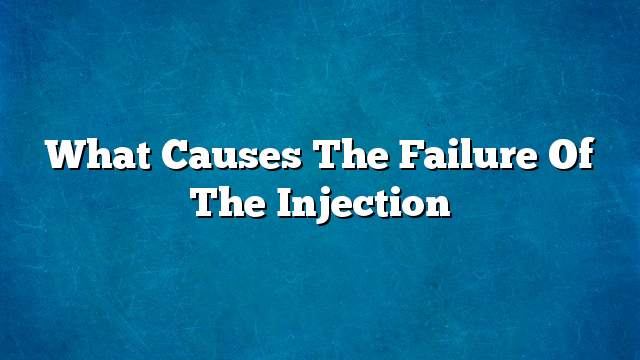The accuracy of the injection process
Despite the accuracy of the IVF process, especially micro-injections, each process has two possibilities; either success or failure. The reasons that may lead to the failure of the injection process are:
The reasons that lead to the failure of the injection
- Poor ovulation in women: This may be for several reasons: lack of egg stock in the ovaries, or because of the program to activate the ovulation of women, or a defect in the study of the elements and hormones that affect ovulation in women. This weakness may sometimes result in the ovaries failing to respond to activation drugs and thus not producing eggs either completely or lack of sufficient production to make a successful attempt, such as producing at least five eggs to be transferred to the uterus after fertilization and formation of a good embryo and thus ensure the success of the process. As increasing the number of embryos returned to the mother ensures the success of the process.
- Poor quality of eggs, sperm or embryos: Lack of quality is one of the main causes of failure in the process of injecting microscopy. Poor egg quality accounts for more than 75% of the causes of poor fetal quality.
- The causes of this are genetic factors or factors acquired to increase blood clotting or lack of blood fluid elements, as well as immune factors (eg, antibodies and their various effects) , For example, ANA, APL, NK CELL ANTITHYRIOD ANTIBODIES), make the body reject the fetus as a strange object. Or because the embryos are placed in the wrong location, so a catheter is inserted into the uterus before implantation of the embryos to determine the size of the uterus and determine the correct location of the implant.
- Lack of thickening of the uterus: It is one of the most important reasons for the failure of the injection process, it affects the implantation of the fetus in the lining and nutrition and protection.
- Congenital or congenital defects in the uterus prevent the implantation of embryos, such as the presence of a uterine barrier or adhesions in the uterine cavity, or the presence of mammary polyps, and is diagnosed with ultrasound or sonar.
- The presence of defects in the fallopian tubes: such as the presence of blockage on the outside of one of the fallopian tubes or both, which leads to the secretion of substances harmful to the life of the fetus and its vital activity, especially on the division.
- Genetic defect in embryonic chromosomes: Any defect in the 46 chromosomes of the fertilized egg results either from an original defect in the egg chromosomes or fertilized sperm chromosomes, or in the process of cell division during fetal formation. This defect can either lead to pregnancy, pregnancy, or the fetus itself, where a fetus may develop a genetic disease that affects his life throughout his life or causes him to die after childbirth.
- Thickness of the outer envelope of oocytes: Sometimes the thickness of the outer casing of oocytes or embryos causes the injection to fail. The thickness of the egg wall is a major cause of sperm injection in the egg, but if untreated it may cause problems in its split after fertilization, The fetus in the womb, so the laser is used to make holes in the thick wall to get out of the fetus and thus solve the problem.
- Multiple Polycystic Ovary Syndrome The ovaries should be stimulated with a measured amount to obtain the desired number of eggs without excessive response.
- Blood clotting factors Coagulation factors cause the failure of embryo implantation in the womb, so blood thinners are used as aspirin.
